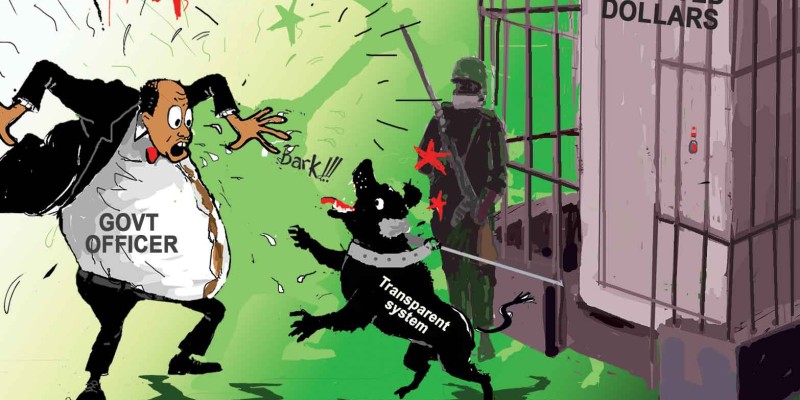Font size:
Print
BANK RECAPITALIZATION: THE N50 BILLION IPO BOGEY
BY: LLES LEBA (Email: llesleba@hotmail.com)
Weblink: http://groups.msn.com/RATIONALPERSPECTIVES
CBN WIELDS THE BIG STICK
The stampede by commercial banks to recapitalize in line with CBN consolidation directive is no longer 'Hot News'! The Nation has witnessed a series of Initial Public Offers - IPOs and private placements from the last quarter of 2004 and the wave may not subside until the last quarter of 2005 when the deadline for the 25 billion naira recapitalization directive lapses on the 31st of December. What is news, however, and disturbing news at that, for both the banks and the investing public is the result of the ongoing capital verification exercise recently announced by the Apex Bank, the Central Bank of Nigeria.
The confirmation that all may not be well with the modus operandi adopted by some of the early birds in the recapitalization exercise was confirmed by the CBN Deputy Director of Corporate Affairs in a headline publication in the Vanguard Newspapers of Monday, 14th March 2005.
IPOs AND INSIDER TRADING
The CBN mouth organ reported that N50bn worth of already allotted shares have been declared null and void on ethical grounds and the respective allotments have consequently been disqualified. The following reasons were proffered by the Apex Bank in defence of its action; those applications for banks' shares which were financed with loans and advances from the banks themselves were rejected; some critics of commercial banking practice in Nigeria have, in agreement, with the CBN revelation described this mode of financing as akin to incest! They argue that a bank should not lend its customers funds for the purchase of its own shares! These critics maintain that the implication of such action borders on fraud and will certainly not deepen the market as intended by the CBN. Indeed if this mode of IPO financing is countenanced, it is likely that all existing banks will comfortably meet the N25 billion recapitalization target! In this event sooner than later, a catastrophic crash will be unavoidable in the financial market as published trading results in the banking sector suggest that hardly any bank can pay annual dividends of more than 10% of the share offer prices; meanwhile the loans for the share purchase would have attracted current market interest rates of 20% and above. Note that we are talking of servicing the cost of funds from the dividends; the burden of repaying the capital sum borrowed for the purpose of the share purchase will most certainly become an albatross on the financial system!
In developed capital markets abroad, this mode of transaction is generally described as ‘insider trading’ and perpetrators of such abuse have been known to serve jail terms as punishment! It remains to be seen how far the CBN is ready to support President Obasanjo's currently energised crusade against corruption in our body polity! It may not be out of place for the CBN to pass on its findings from the capital verification exercise to the EFCC (Economic & Financial Crimes Commission) for further investigation and appropriate action! If we crave acceptance in international money markets, we must be seen to play by the rules of international money markets!
MONEY LAUNDERERS AND IPOs
The second reason adduced by the CBN for disqualification of some of the N50 billion share allotment is the discovery or the suspicion that part of the funds emanated from the coffers of money launderers and funds from questionable sources! It is unlikely that the CBN investigators would wield the big stick of disqualification on 'mere suspicion' of dubious sources of funds. In other words, the CBN must have had sufficient evidence to determine the credibility or lack of credibility of the sources of the funds in question. Again, critics of the malaise in our financial system applaud the CBN for its eagle eyed scrutiny of the sources of IPO funding. They argue that it would be dangerous to allow our money market to fall into the hands and control of 419ers and other corrupt government contractors and/or officials; failure to arrest the tide could spell doom for probity and accountability in our financial system once these undesirable elements establish their stranglehold on bank ownership and control. It would be expected that the CBN would also stand up and be counted in the fight against corruption by handing over the files on all such suspicious applications to the EFCC for further investigation.
The EFCC would be expected thereafter to prosecute the applicants with dubious financial means according to the law, while the innocent ones will of course receive appropriate apologies and mitigations for lost opportunities as a result of CBN and EFCC investigative procedures.
DOLLAR DENOMINATED SUBSCRIPTIONS
The third major reason proffered by the CBN for rejecting part of the N50 billion share allotment was the nature of their dollar denominated subscriptions. Nigeria is, of course, a member of the international economy, but this does not preclude our expression of our sovereignty in the adoption of our national currency, the Naira as the official legal lender. It is unclear therefore why some of the early birds in the recapitalization exercise chose to entertain applications denominated in dollars! In any event, the banks are traditional custodians of the formal procedure for domesticating foreign direct investment through the foreign exchange market. Critics have expressed suspicion on the motives of the banks for accepting dollar denominated subscriptions in the first place; at what point critics have wondered, would the dollar be converted into Naira and at what rate would the conversion be made? The attendant speculative possibilities and encouragement to round tripping of DAS (Dutch Auction System) sourced dollars have contributed to the negative feelings of the dollar denominated subscriptions.
EXCESS AND CASH SUBSCRIPTIONS
Finally, the CBN has insisted that where IPOS were over subscribed, the excess values should be returned to the investors against the expressed wish of the banks to accommodate the over subscription. The net result of the CBN’s rejections after the capital verification exercise is to send the sponsors of some, if not all the presumably already concluded IPOs back to the drawing board at great expense. The road to recapitalization will also be obviously rougher for those banks who are yet to approach the capital market with their IPOs. Some of these banks who had envisaged the mobilization of funds from the mass market, i.e. artisans and the working class may have to restructure their strategy as the CBN has also rejected subscriptions paid for in cash; Critics are uncertain why the CBN has voided all shares purchased in cash, but some observers believe that this may have to do with the CBN's desire to move the nation from a cash based economy and promote a more manageable and compact monetary framework that will be more easily amenable to CBN policies and controls. Be that as it may, the bank recapitalization project is certainly not yet over and we may still witness some twists and turns before the deadline of 31st December 2005, and the net benefit of this exercise may remain unclear for some more time thereafter. Will the banks become stronger? Will the banks become more efficient? Will ownership be diversified? Will the banks become more responsive to the real sector? Well, we will have to wait and see. Meanwhile, we wish the CBN good luck!
Save the Naira, Save Nigeria!!
PS/ Copies of the earlier articles of ‘Rational Perspectives’ are available on the internet on this link: http://groups.msn.com/RATIONALPERSPECTIVES which you can access by registering as a member. Registration is free. You may also use this medium to publish your views on the Nigerian economy.









